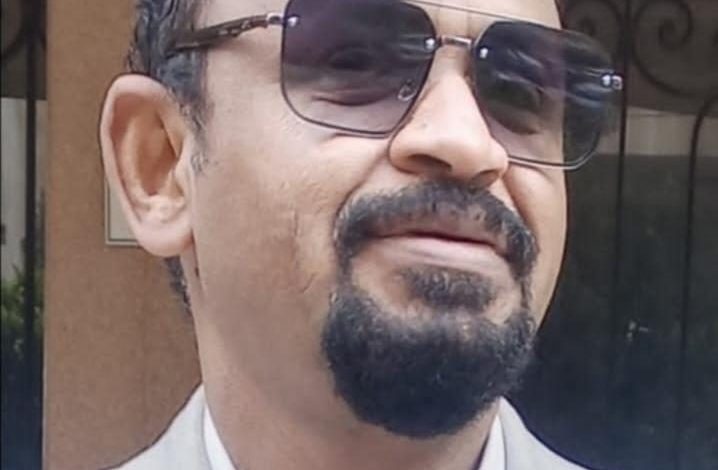New Scene … Are Radio Broadcasters Fit to Manage TV

Abdul Sami Al-Omrani
In 1960 , the electoral battle was at its fiercest in the United States of America (USA )between the Republican Party candidate, the US Vice President at the time, the cunning Nixon, and the young, handsome, elegant Democratic Party candidate, John Kennedy. The first debate was held over the Radio, and at that time, radio had its own brilliance, radiance, and wide spread.
Radios were spread everywhere in government offices, markets, cafes, restaurants, hotels, public parks, and were carried in small cars, trucks, and other places.
The debates that were broadcast over the radio between the candidates for the race to the White House, Nixon and Kennedy, Nixon excelled during them and outperformed the young John Kennedy, as Nixon appeared during the debates to be present in his mind, an eloquent speaker, and an understanding of all the events and familiar with all the challenges facing the United States of America (USA) while his opponent, John Kennedy, was unable to keep up with him. After that, the opinion polls came out in favor of the Republican Party candidate, Richard Nixon, but after organizing four TV debates between them in September of 1960,he won In the polls, John Kennedy won the four debates after outperforming Richard Nixon on screen.
The TV debates paved the way for him to win the elections. Some accounts say that most of the female votes went to the handsome Kennedy, who cared a lot about his appearance and sought the help of makeup and clothing experts.
From this, it becomes clear to us that radio work is different from television, although there is a lot of similarity and overlap between them.
However, the magic screen has its own brilliance, attractiveness, and distinction from Radio. also, managing Radio work, i.e. Radio station, is different from managing a TV channel, which raises several questions!
Is it appropriate for a Radio broadcaster to become a screen star?
And can a Radio broadcaster who excelled in managing radio stations manage a te station?
The satellite channel has its own momentum and complexities and includes human armies of workers, technicians, directors, broadcasters, and broadcasters, which is different from radio, which does not need such huge numbers of people.
Can a radio broadcaster who suddenly turns into a satellite channel manager, can he balance between management and social work within the TV station, given that the satellite channel is not free from conspiracies, harmful competition and some diseases of the human psyche such as envy, jealousy and others.
We point out that some evidence in Sudan has affirmed the failure of a significant number of radio broadcasters who excelled in radio work, but when they faced the magic screen, they became confused and lost their eloquence, rhetoric, spontaneity and comfort that they used to find in radio work. We mention among them, for example, the sons ( broadcasters) of Abdul Karim Abdullah, who are a radio duo with the best voices on Omdurman Radio, but when the Sudanese satellite decided to hire one of them as a broadcaster and program presenter, his performance was not brilliant and he was not accepted by the viewer, so he quickly returned to his den and place of distinction and brilliance, which confirms that some have great talents and abilities and are accepted in radio work, but the magic screen is not their place. In reference to the incident of the wonderful radio expert, Ibrahim Al-Buz’i, with the Beja broadcaster, Zainab Ira, which stopped the hearts of many Sudanese people for fear that this incident would develop into a political, security and military event that would turn Port Sudan into another city, and we know that fire starts from a small spark.
Thanks be to Allah and His kindness to us, the incident passed peacefully, and there is no doubt that the wisdom and calm of the governor of the Red Sea state and some of the wise men of the port played a clear role in extinguishing the fire.
I do not want to go into the details of what happened and blame the broadcaster who exploited the incident or blame the great professor Al-Buz’i, who perhaps did not understand the complexities of the social and security file in the Red Sea and perhaps could not balance between managing radio and television work due to the difficulty of managing satellite channels compared to managing Radio stations.
Yes, the man is a skilled broadcaster and an expert in heritage and diversity issues after the wide fame of his famous Radio program (Balila Mubasher) and we know that he has the love and wide acceptance of all sectors of the Sudanese people, but the question that remains is: Is the broadcaster Ibrahim Al-Buz’i the right man at this critical stage in Sudan’s history to manage the National Radio and TV Corporation?
Particularly, since this corporation focuses to a great extent on the aspect of managing the affairs of the Sudanese satellite screen, which is the channel that is in charge of managing the fierce media battle with a fierce media enemy supported by international and regional parties that employ a group of satellite channels that possess enormous capabilities in its favor.



